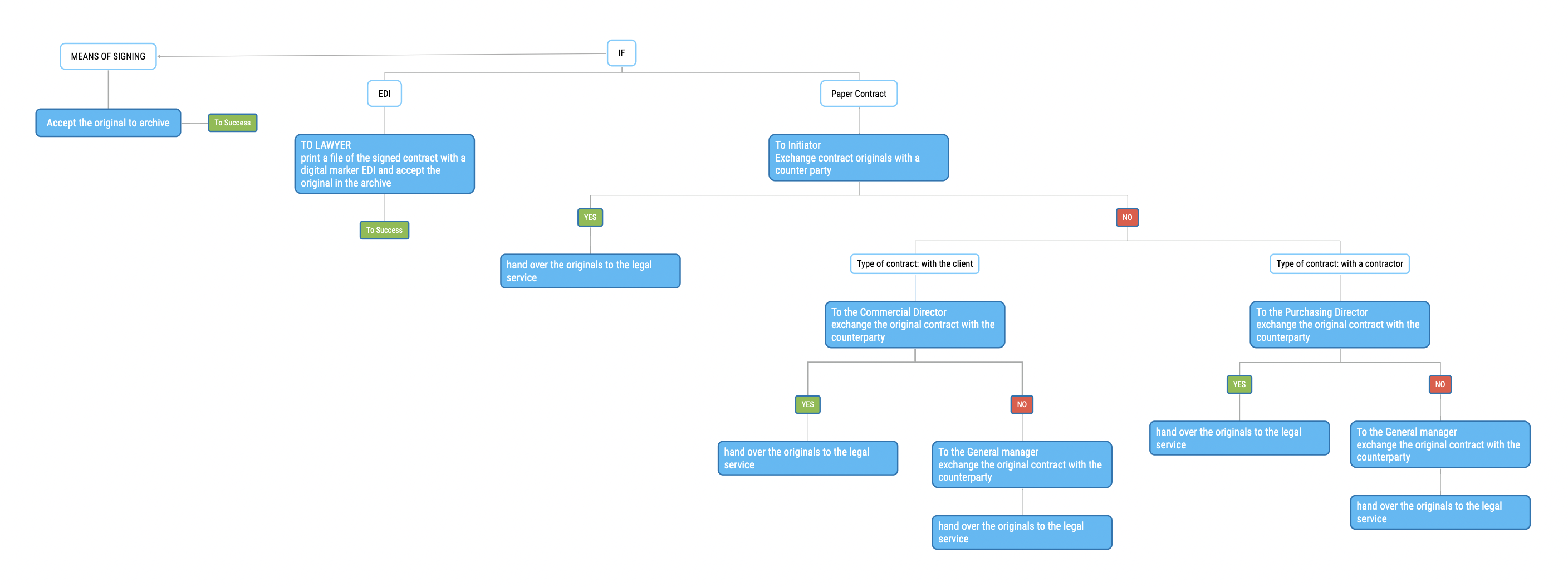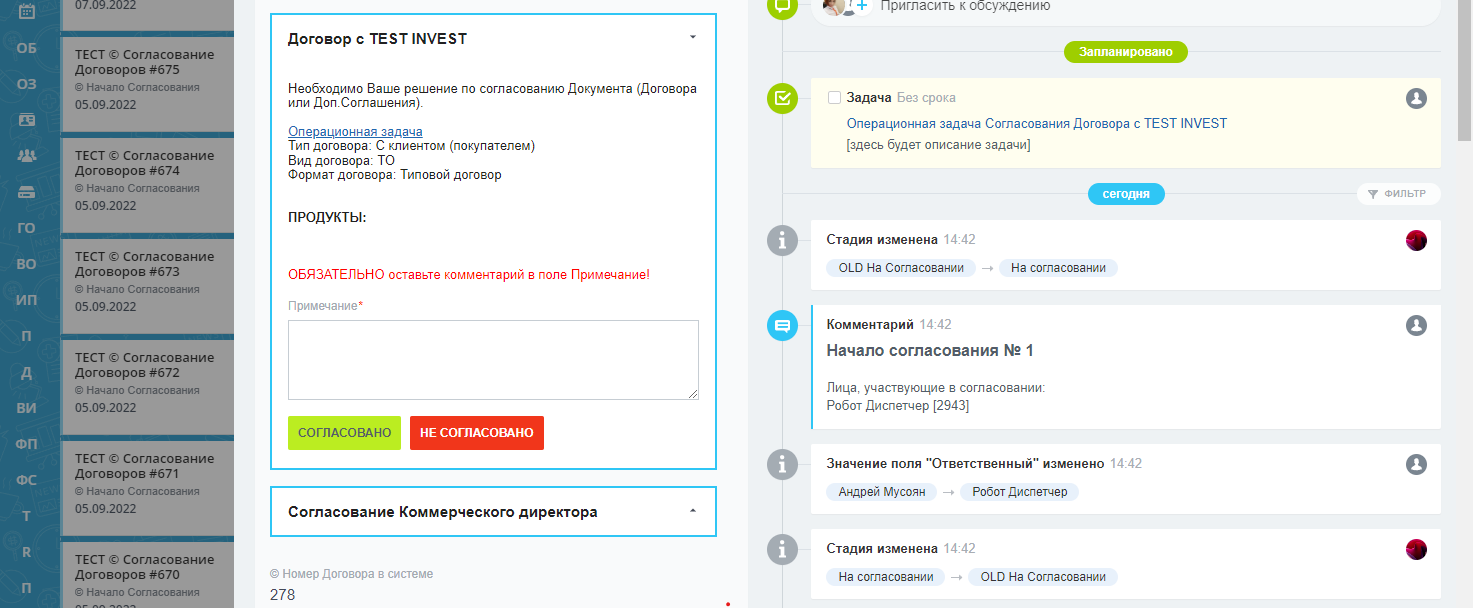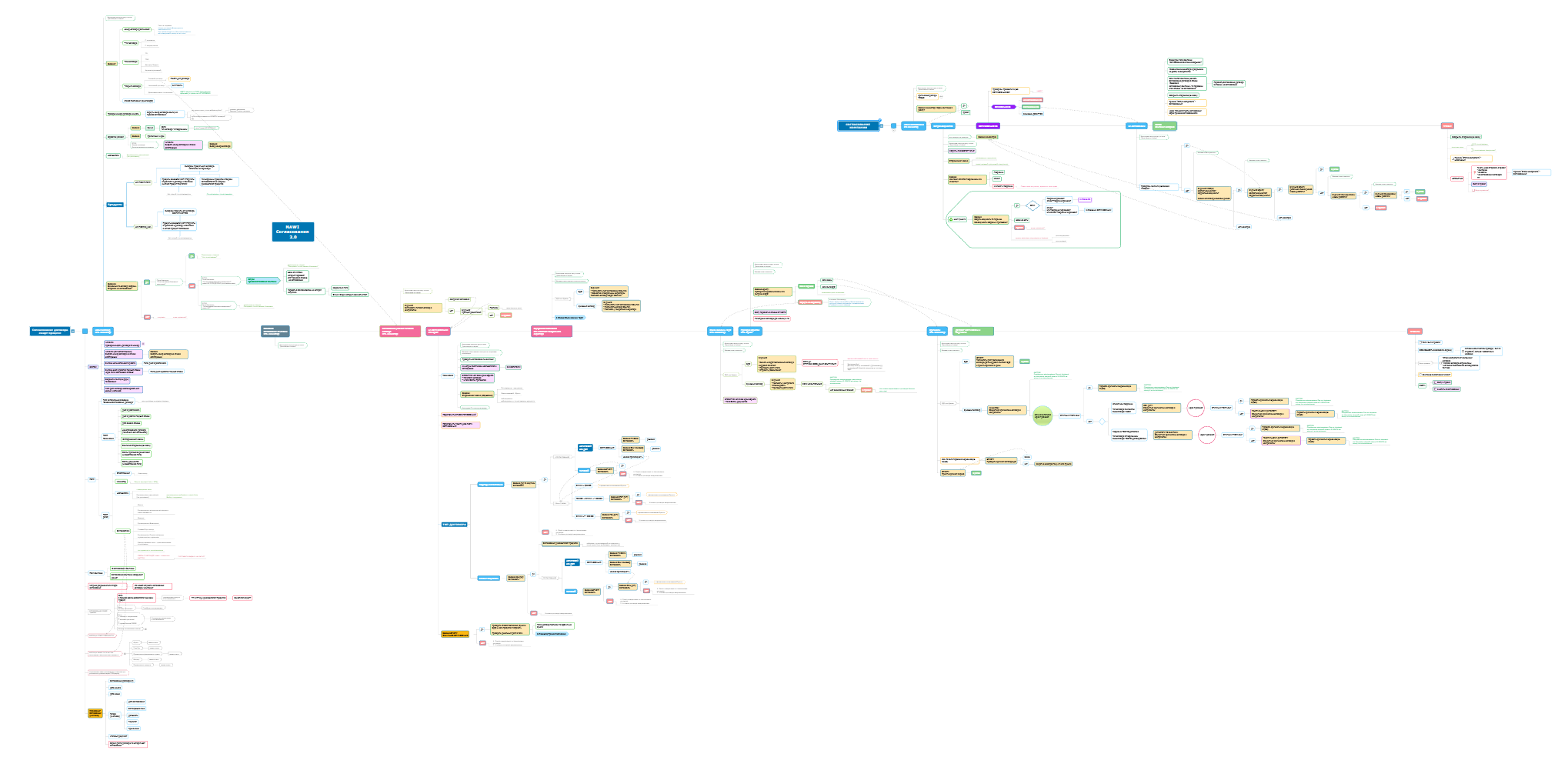2023

what is this article about?
It is now clear to everyone that an electronic document management system is no longer an option. Speed is the key to gaining one of the competitive advantages, thanks to coordinated work, order and transparency of processes.
Below are the main components of the solution.

The "Security Officer" role was outsourced and replaced with a service from an outside company. Read about the API exchange we developed for this purpose further in the article.
types of approvals
We defined both of these related processes in Bitrix24 smart processes.
At any time, we can print an Approval Sheet that has all the information about the document under approval:
And also about each vote of each approver:
The system generates such document at the beginning of the process. Also, the system updates the document after each approver’s vote and saves it in a smart process card. At any moment, the up-to-date approval sheet can be extracted from the card or timeline.
WE BUILD EACH PROCESS BASED ON THE FOLLOWING PRINCIPLE: PROCESS CREATES A PRODUCT, EACH STAGE OF CREATION IS A SUBPRODUCT
The product of the approval process is a company or a document that is approved or rejected. A subproduct at each stage is a completed stage where the state of the process component changes qualitatively. For example, at the "New Approval" stage, we define and describe the parameters of the process component. At the "Lawyer Approval" stage, we get a subproduct in the form of a permission from the lawyer to go on with the process.
At each stage, we obtain a subproduct by assigning tasks to various roles in sequence and in parallel. We describe the tasks in detail providing full information that is already in the system and is needed to make a decision or do the work.
statuses of approval processes
Company approval is a blocking process for approving a Contract if it is the first one for this company in the system. So let's describe this process first.
At this stage, the initiator starts the approval process. If Start is confirmed, the approval moves to the next stage.
At this stage, several actions take place:
At this stage, automatic exchange is in place. Through an API, information about the company is sent to the verification service.
The response from the outsourced security service is classified by the system automatically and, depending on the decision, we either move on to the next stage or go one stage back and make an additional request for documents.
Once we have passed the security check, we move on to the cascading approval.
The Chief Accountant, the Lawyer, the Commercial Director, and the CFO, sequentially give their approvals to work with the company.
If everyone has given their approvals, we move on to the Success stage.

In the success stage we return a signal to the process of Agreements/Supplementary Agreements that the work can continue.
In addition, we set an attribute “Approved" in the CRM card of the company. In 180 days this attribute will be removed and the company will need to be approved again.
If the company is not approved, at this stage we also put an attribute "Non-valid company" in the CRM card in the corresponding field.
The contract number is checked for duplication, the amount of the contract is requested and, after passing through a number of conditions, we proceed to the selection of products for approval. The company's products in the process of approval determine the list of approvers.
When all the attributes are collected and the list of approvers is formed in accordance with all the conditions, we give a task to start the approval. The completed task moves the smart process component to the next stage.
At this stage, we check whether the company has an attribute "Agreed to Work”. If it doesn’t, we generate a new component of the approval process.
If the company has been approved, we move on to the next stage.
If the initial attributes of the component contained “the approval of a standard contract”, at this stage we need to agree on a standard contract with the counterpart.
Standard contracts are generated by the system based on CRM data and sent to the counterpart automatically.
Then we wait for either approval or a protocol of disagreement.
Finally, when the document is approved, we move on to the next stage.
We create an operational task and add all the necessary approvers. This task is created to coordinate the approval and exchange opinions on the document.
Then we form an Approval Sheet, as described above.
We give a task to each approver and wait for everyone to vote. After that we pass all the information to the lawyer who has to make the final approval.
The lawyer finalizes the document and the component of the smart process moves on to the next stage.

At this stage, depending on the method of signing, we give the Assistant to the General Manager a task:
FOR E-SIGNING
FOR SIGNING ON PAPER
After completing the task, we move to the next stage.
Depending on the method of signing, we give the Initiator a task to return the original documents:
FOR E-SIGNING
FOR SIGNING ON PAPER
To form a cloud archive of documents, it is very important to require an attachment of a document to the field of a smart process component. This way, if necessary, you can always find the information if it is unavailable in other storage locations.
After completing the task, we move to the next stage.
At this stage, we give a task to the lawyer to check the documents. The lawyer has to confirm that everything is drawn up correctly and that all the files are uploaded in the corresponding fields.
After completing the task, we move to the next stage.
No actions are taken at this stage, but you can always add new tasks and automatic actions in the future.
If the approval was initiated by the commercial department, the deal is also sent to failure.
At all stages, in parallel with the tasks, activity control is set to remind the person in charge (or a deputy) that the task requires execution.
In case an employee ignores the task for a long time, a signal is sent to his/her direct supervisor.
This method of working with reminders has significantly reduced the time of voting and of moving approvals to the final stage.
reporting
At all stages of approval processes we have set up actions that record the date of entry into the stage and the date of exit from the stage. Logging of these events allows to analyze such attributes as time for each stage by types of documents, approvers and other conditions.
results
The main task - to speed up the approval process - is complete. If previously it could take weeks to approve one contract, now it is a matter of three days to take it to one of the final stages.

roadmap
The Customer's management has been satisfied with the work of the new tools. Therefore, more work has been planned and approved in the following areas: